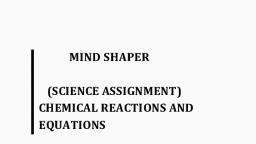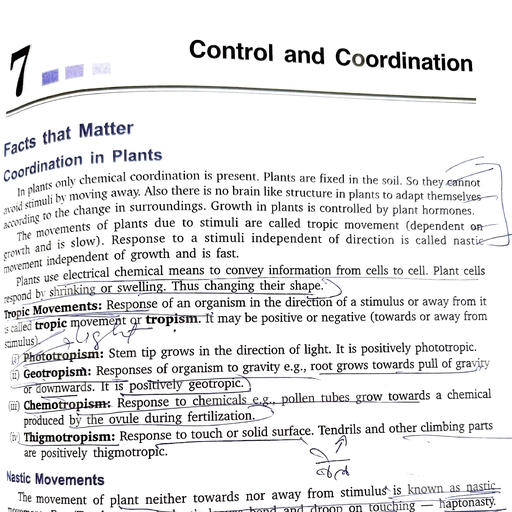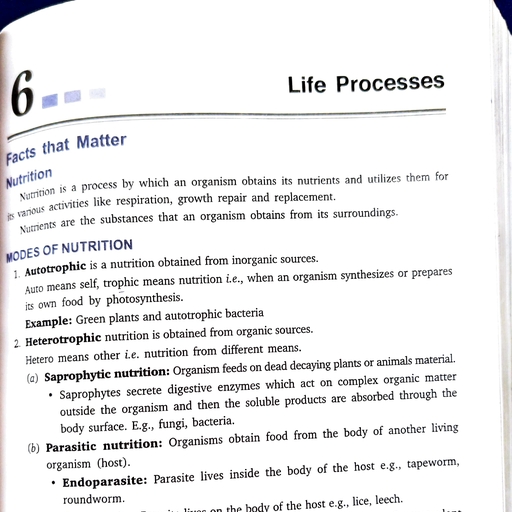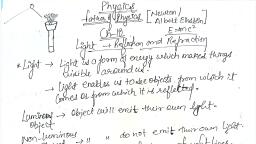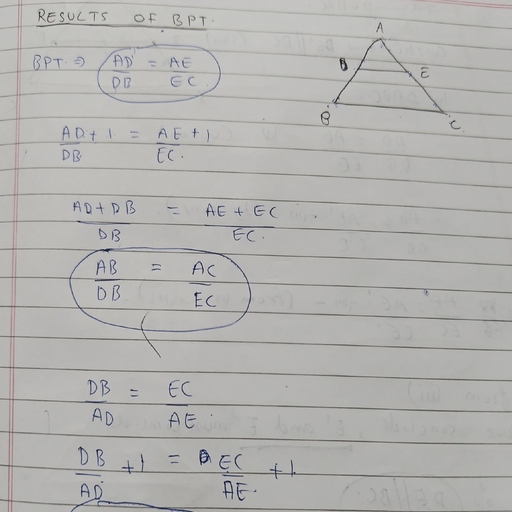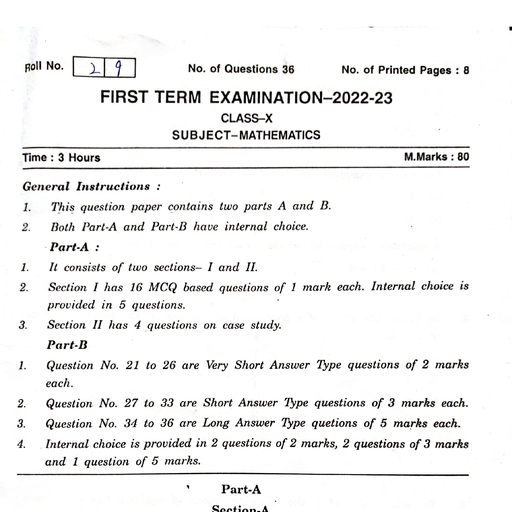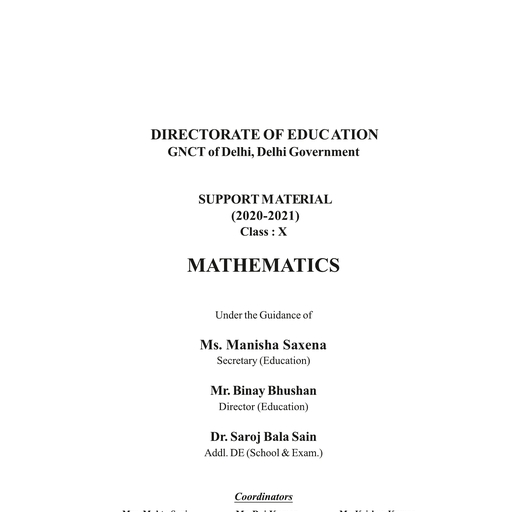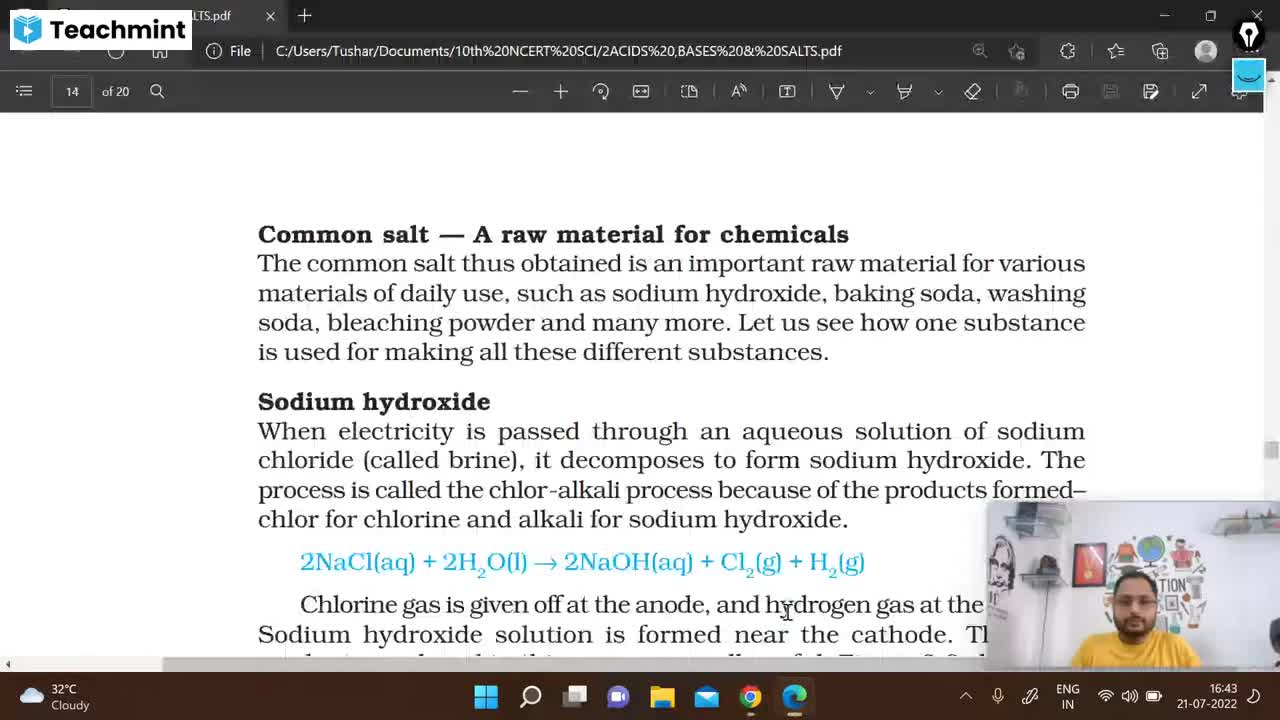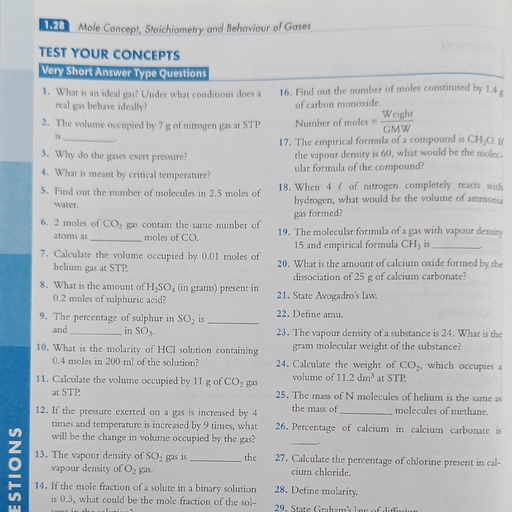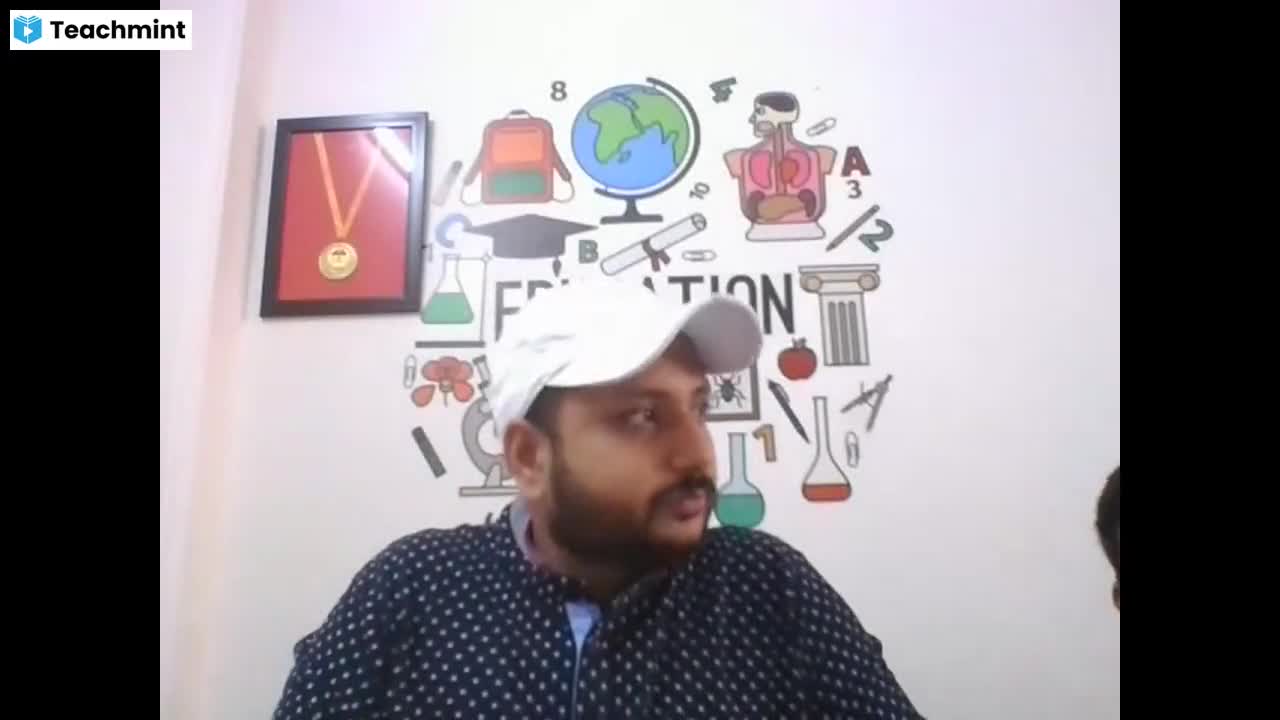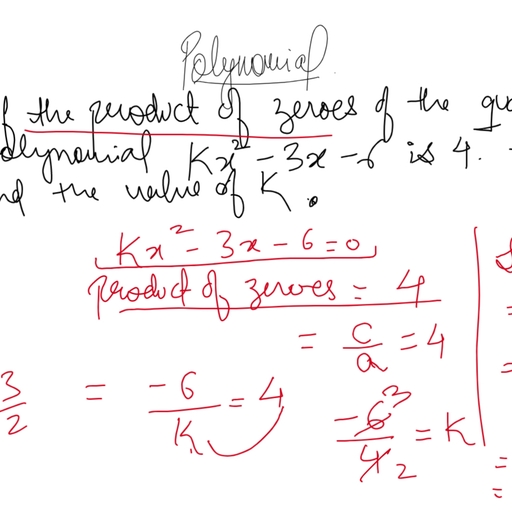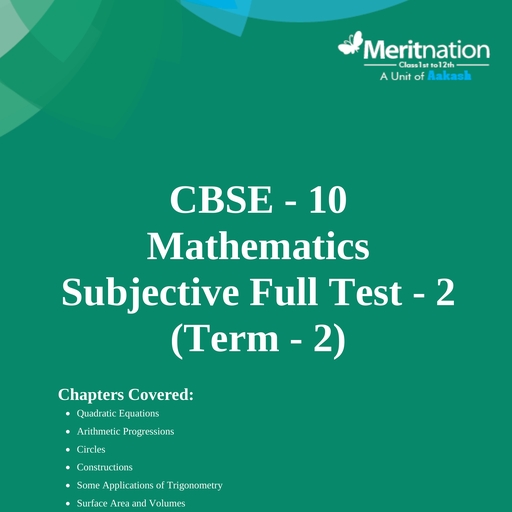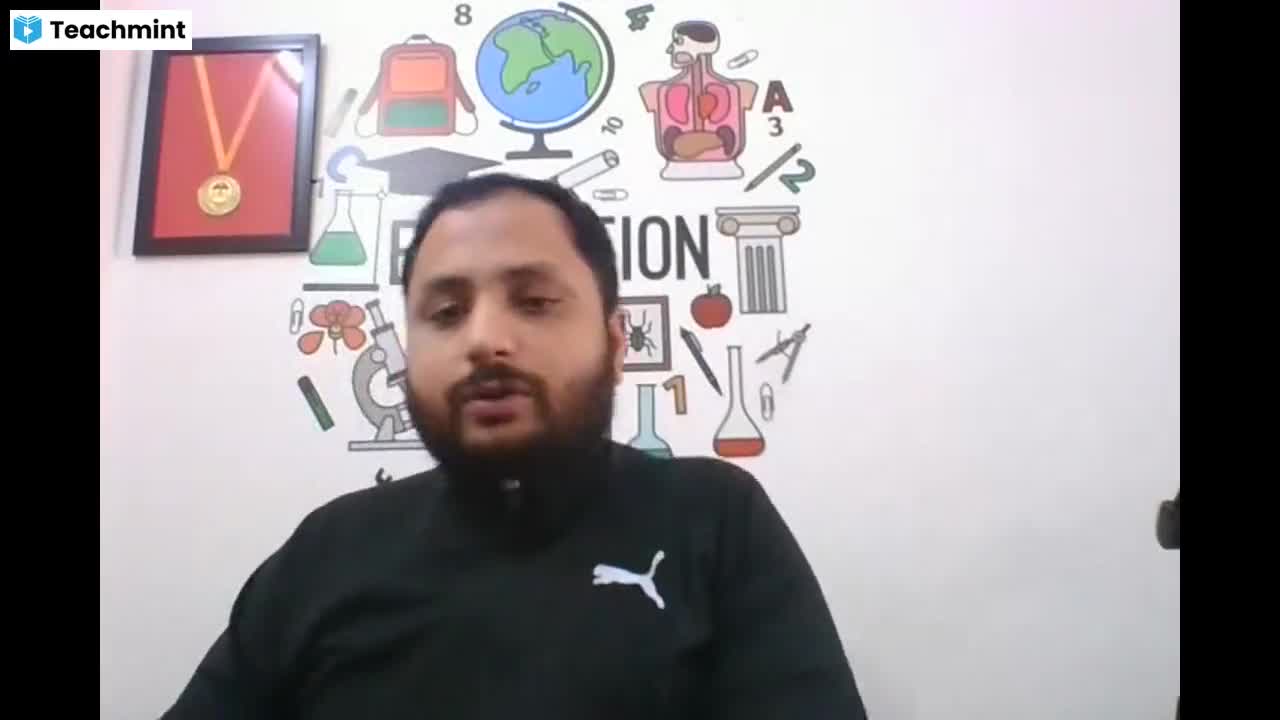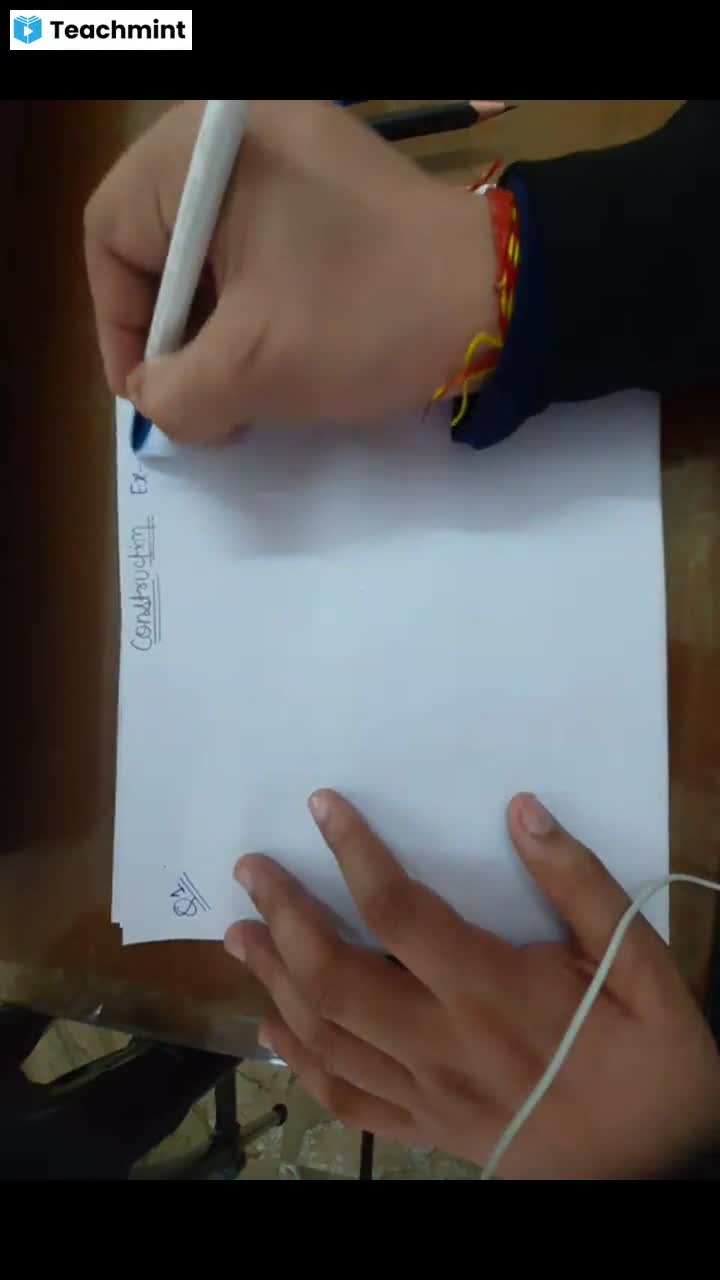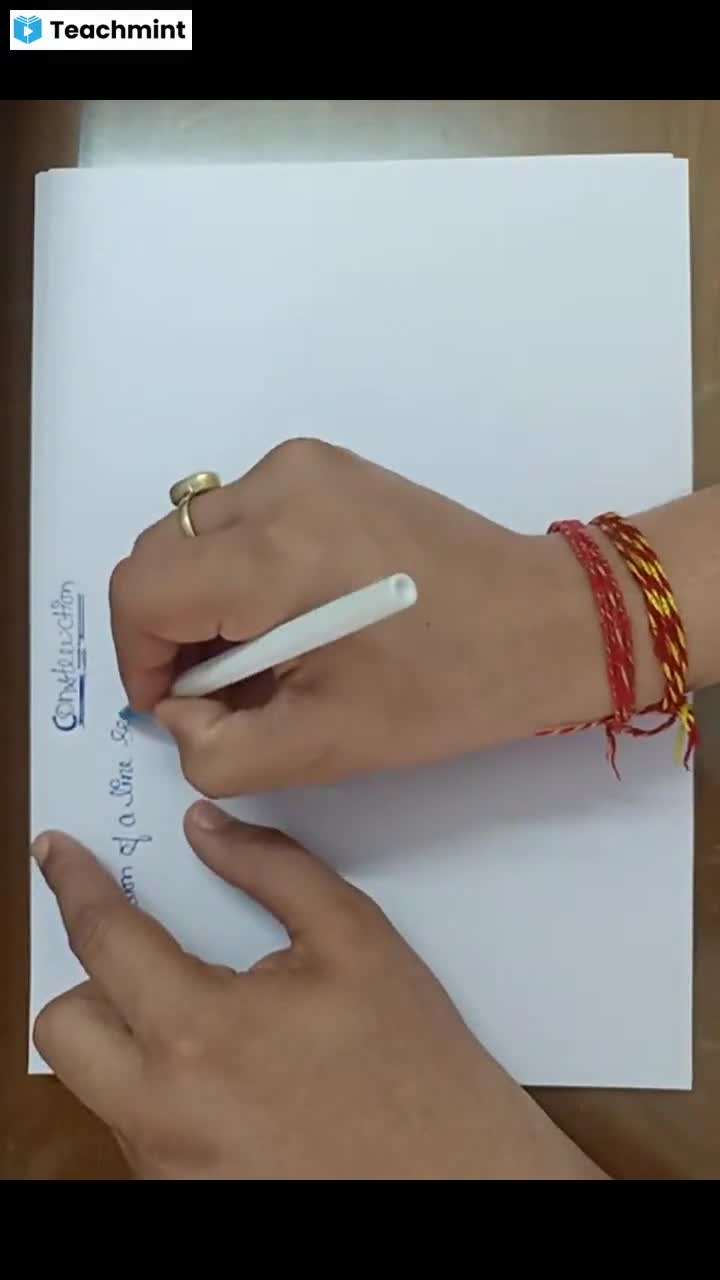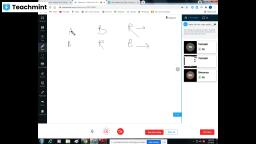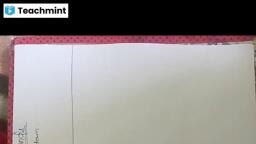Question 1 :
If $9y^{2}\, -\, 3y\, -\, 2\, =\, 0$, then $y\, =\, \displaystyle -\frac{2}{3}, \, \displaystyle \frac{1}{3}$.<br/>
Question 2 :
Check whether the given equation is a quadratic equation or not.<br/>$3{ x }^{ 2 }-4x+2=2{ x }^{ 2 }-2x+4$
Question 3 :
The length of a rectangular verandah is $3\:m$ more than its breadth. The numerical value of its area is equal to the numerical value of its perimeter. Taking $x$ as the breadth of the verandah, write an equation in $x$ that represents the above statement.
Question 4 :
The mentioned equation is in which form?<br/>$(y\, -\, 2)\, (y\, +\, 2)\, =\, 0$
Question 5 :
The difference of two natural numbers is $4$ and the difference of their reciprocals is $\dfrac{1}{3}$. Find the numbers.
Question 7 :
If $x^{2} + 10 x = 24,$ where $x>0$, then the value of $x + 5$ is
Question 8 :
For the expression $ax^2 + 7x + 2$ to be quadratic, the necessary condition is<br>
Question 11 :
Is the following equation quadratic?$(x\, +\, 3) (x\, -\, 4)\, =\, 0$
Question 14 :
Find $ p \in R $ for $x^2 - px + p + 3 = 0 $ has<br/>
Question 15 :
If $\displaystyle \frac{5x+6}{\left ( 2+x \right )\left ( 1-x \right )}=\frac{a}{2+x}+\frac{b}{1-x}$, then the values of a and b respectively are
Question 16 :
Choose the quadratic equation in $p$, whose solutions are $1$ and $7$.<br/>
Question 17 :
If $C > 0$ and the equation $3 a x ^ { 2 } + 4 b x + c = 0$ has no real root, then
Question 18 :
If $p$ is chosen at random in the interval $0 \le p \le 5$,the probability that the equations $x^{2}+px+p/4+1/2=0$ are real is
Question 20 :
Choose best possible option.<br>$\displaystyle\left( x+\frac { 1 }{ 2 } \right) \left( \frac { 3x }{ 2 } +1 \right) =\frac { 6 }{ 2 } \left( x-1 \right) \left( x-2 \right)$ is quadratic.<br>
Question 21 :
If in applying the quardratic formula to a quadratic equation<br>$f(x) = ax^2 + bx + c = 0$, it happens that $c = b^2/4a$, then the graph of $y = f(x)$ will certainly:
Question 22 :
If a, b, c $\epsilon\ Q\ $, then the roots of the equation $(b + c - 2a) x^{2} + (c+a-2b) x+ (a+b-2c) = 0$ are<br/>
Question 23 :
The quadratic $x^2+ax+b+1=0$ has roots which are positive integers, then $(a^2+b^2)$ can be equal to
Question 24 :
The given equation has real roots. State true or false: $8x^2 + 2x -3 = 0$<br/>
Question 25 :
If the ratio of the roots of equation$\displaystyle x^{2}+px+q=0$ be equal to the ratio of the roots of$\displaystyle x^{2}+lx+m=0$ then
Question 26 :
In the following, determine whether the given quadratic equation have real roots and if so, find the roots :<br/>$\sqrt{3}x^2 \, + \, 10x \, - \, 8\sqrt{3} \, = \, 0$
Question 27 :
If difference of roots of the equation$\displaystyle x^{2}+px+8= 0$ is $2$, then $p$ is equal to
Question 28 :
If one of roots of $x^2+ ax + 4 = 0$ is twice the other root, then the value of 'a' is .
Question 29 :
If $b_1b_2=2(c_1+c_2)$, then at least one of the equations $x^2+b_1x+c_1=0$ and $x^2+b_2x+c_2=0$ has
Question 30 :
If the absolute value of the difference of roots of the equation $\displaystyle x^{2}+px+1=0$ exceeds $\sqrt{3p}$
Question 31 :
Let $r,s,t$ be roots of the equation $8x^3+1001x+2008=0$. The value of $(r+s)^3+(s+t) ^3+(t+r) ^3$is
Question 32 :
If one root of the equation $a{ x }^{ 2 } + bx + c = 0$ be the square of the other, then the value of${ b }^{ 3 } + { a }^{ 2 }c + a{ c }^{ 2 } $ is<br>
Question 33 :
If one of the roots of $\displaystyle x^{2}+f(a)x+a=0$ is equal to third power of the other for all real $a$, then 
Question 34 :
The coefficient of $x$ in the equation $x^2+px+q=0$ was wrongly written as $17$ in place of$13$ and the roots thus found was $-2$ and $-15$.<br>Then the roots of the correct equation are
Question 35 :
In the equation, find the negative value of p,<br>$\displaystyle p-3=\frac { 10 }{ p }$
Question 36 :
The equation $\displaystyle 9y^{2}(m+3)+6(m-3)y+(m+3)=0 $, where $m$ is real has real roots then 
Question 37 :
If $\alpha$, $\beta$ are the roots of the equation $a{ x }^{ 2 }+bx+x=0$, then the roots of the equation $\left( a+b+c \right) { x }^{ 2 }-\left( b+2c \right) x+c=0$ are
Question 38 :
If the roots of the quadratic equation $x^2+6x+b=0$ are real and distinct and they differ by at most $4$, then the range of values of $b$ is:
Question 39 :
If one of the roots of $x^2-bx+c=0,\:(b,c)\:\epsilon\:Q$ is $\sqrt{7-4\sqrt 3}$ then:
Question 40 :
The value of $'a'$ for which the equations $x^{2}-3x+a=0$ and $x^{2}+ax-3=0$ have a common root is

